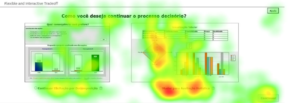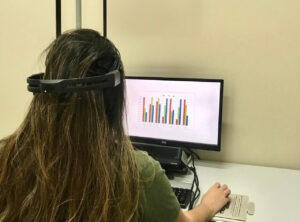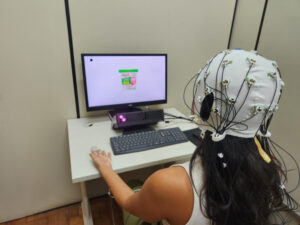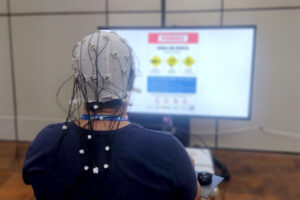The NSID carries out various research projects related to neuroscience, mainly in the following areas:
Decision Support Systems Interfaces
We investigate and design advanced interfaces for decision support systems, exploring how visual analytics, interaction design, and information structure influence cognitive processing and decision accuracy. Our studies aim to reduce complexity, support rational reasoning, and improve the usability and trustworthiness of decision technologies in real-world contexts.

Behavioral Aspects Analysis for Modeling Decision Maker Preferences
We analyze cognitive and behavioral factors that shape how individuals express, refine, and adapt their preferences when facing complex trade-offs. This research integrates psychological theories, experimental methods, and computational modeling to build more reliable preference elicitation techniques and enhance multi-criteria decision-making models.

Neuromarketing and Consumer Neuroscience
We apply neuroscience tools, including EEG, eye tracking, and physiological measurements, to examine how consumers perceive, process, and emotionally respond to marketing stimuli. By linking neural and behavioral data, we aim to reveal mechanisms of attention, motivation, and cognitive effort that drive choice, supporting evidence-based marketing and product design strategies.

Analysis of the Perception of Risk Warning Signs
We study how design elements such as color, shape, contrast, and message framing influence attention and risk comprehension in warning signs. Through controlled experiments combining EEG, eye tracking, and augmented reality simulations, we generate evidence-based guidelines and prototypes of static and dynamic signage to improve public safety and behavioral response in hazardous environments.

Behavior of the Decision Maker in the Context of Group Decision
We investigate the interplay between individual cognition and group dynamics in collaborative decision-making settings. Our work examines how social influence, shared mental models, and conflict resolution shape preference aggregation, consensus building, and decision quality, providing insights for designing fair and efficient group decision processes.

Behavior of the Individual in the Context of Negotiation
We explore the cognitive, emotional, and strategic mechanisms underlying negotiation, focusing on how factors such as trust, risk perception, and information framing impact bargaining behavior and outcomes. By integrating behavioral experiments with decision analysis, we aim to advance understanding of negotiation strategies and support training and decision-support tools in conflict resolution.




